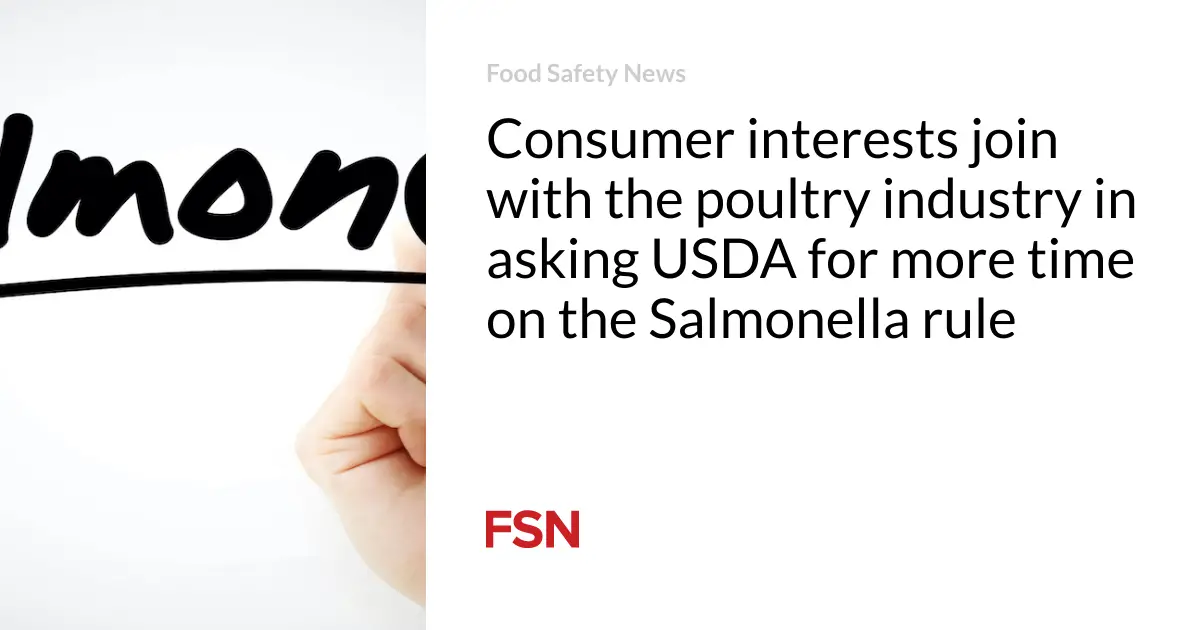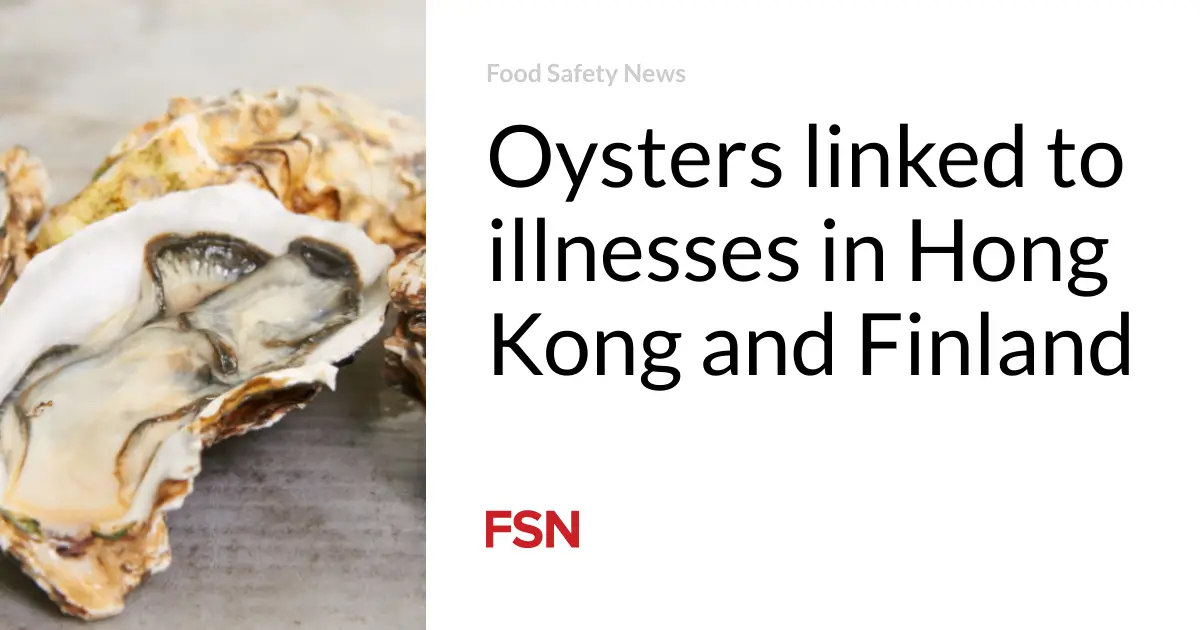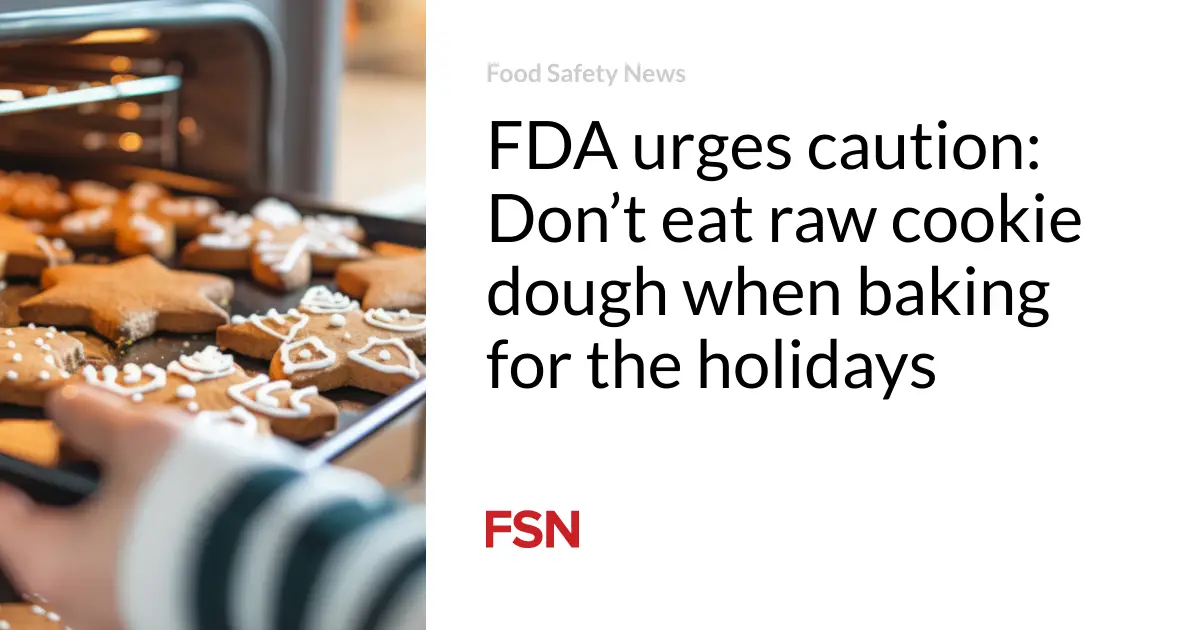
Leading consumer interests advocating food safety are asking USDA’s Food Safety and Inspection Service (FSIS) for a six-month comment extension for the new poultry standard for Salmonella that was rolled out in July.
The request was made to the federal rulemaking docket and USDA’s Under Secretary for Food Safety Dr. Emilio Esteban.
The consumer interests request a six-month extension so that FSIS can provide an opportunity for public comment and genuine stakeholder dialogue on the need for and feasibility of a complementary Salmonella standard.
In asking for more time, the consumer interests acknowledge they are joining with the poultry industry in wanting more comment time.
“Stop Foodborne Illness (STOP), Consumer Reports, the Consumer Federation of America, and the Institute for Food Safety and Nutrition Security at The George Washington University Milken Institute School of Public Health are writing to explain why we joined the Poultry Safety Coalition’s recent request for an extension of the comment period on USDA’s Salmonella in poultry rule-making. We urge you to grant a six-month extension, and we outline here what we hope can be accomplished with that additional time.” states the request.
The consumer interests were also careful not to offend the USDA.
“First, however, we want to applaud and express sincere appreciation for this FSIS rulemaking initiative,” they said. “It breaks critically important new ground by proposing the first legally enforceable finished product standards to limit the presence of dangerous Salmonella in poultry. This is a common sense but long overdue reform. You, Secretary Vilsack, Deputy Under Secretary Eskin, and the FSIS team deserve much credit for this USDA breakthrough in food safety policy. Properly constructed, enforceable product standards will make a big difference for consumers and public health.”
And they were clear about their reasons for asking.
“We joined in requesting an extension of the comment period because we are concerned that the proposed rule is not sufficiently comprehensive and may by itself foreclose important reforms that we believe USDA should consider for inclusion in the final rule,” it continued. “Additional time is required for USDA to notify stakeholders regarding these alternatives and to solicit written comment and genuine public dialogue to produce the best possible rule.”
Representatives Steve Womack, R-AR, and Jim Costa, D-CA, co-chairs of the Congressional Chicken Caucus, were the first to ask USDA Secretary Vilsack for an additional 180 days for comments on the proposed Salmonella Framework.
The National Chicken Council (NCC) followed and wants at least a 90-day extension of the comment period for the Food Safety and Inspection Service’s proposal.
The USDA proposal is a rule that would stop poultry producers from selling chicken and turkey contaminated with high levels of certain Salmonella.
The rule would make it illegal to sell chicken, chicken parts, ground chicken, and turkey if contaminated with certain Salmonella. The USDA’s Food Safety and Inspection Service will apply the rule, which was more than three years in the making.
“We also urge FSIS to convene one or more public stakeholder dialogue meetings that include FSIS leaders and staff, consumer and industry representatives, and independent experts to provide an opportunity for genuine exchange among FSIS and its stakeholders on the issues related to a Salmonella spp. standard,” said the consumer groups. “Such meetings should be open to the public in conformance with (procedural) requirements and be designed both to inform FSIS and build understanding among stakeholders on the key issues and possibilities for resolving them.”
“For an issue of such impact on consumers and on which USDA is breaking important new ground, we think USDA should provide a setting in which consumer voices can be heard alongside other industry and other stakeholders,” says the request.
The consumer interest groups suggest that FSIS grant a six-month extension from Nov. 7
(To sign up for a free subscription to Food Safety News, click here.)






